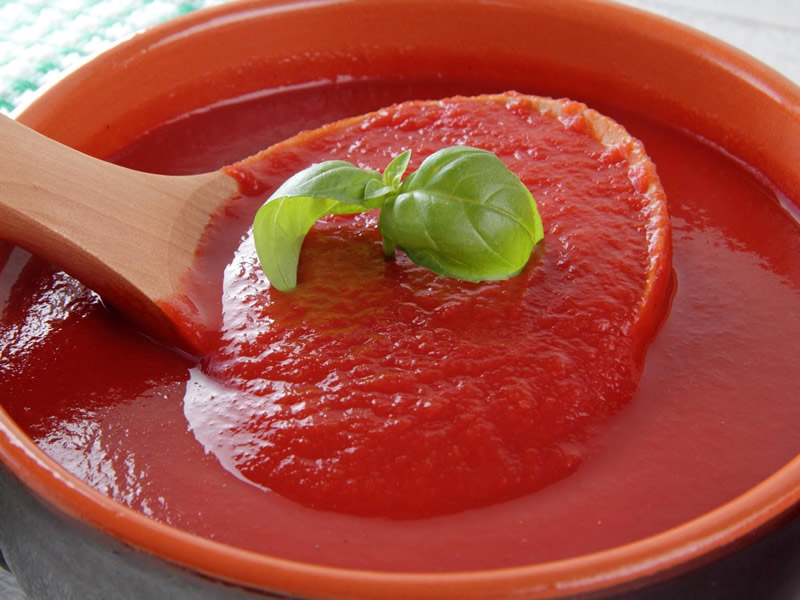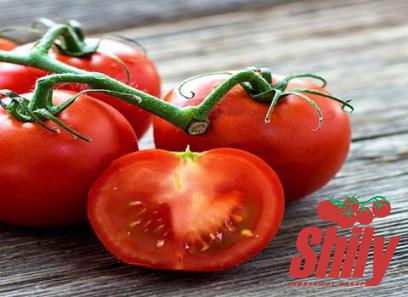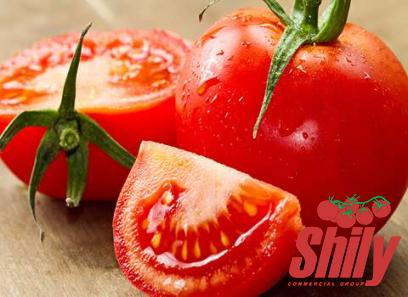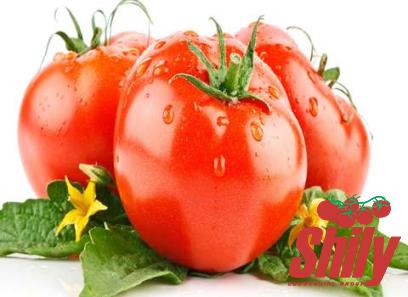Exploring the World of Ketchup Sauce: A Comprehensive Summary of Types and Varieties
Introduction:
Ketchup sauce has become an essential condiment in households worldwide, adding a tangy and flavorful kick to a variety of dishes. This beloved condiment, primarily made from tomatoes, vinegar, sugar, and spices, has evolved over the years, giving rise to a multitude of types and variations. In this article, we’ll explore the diverse types of ketchup sauce available, offering insights into their origins, flavor profiles, and popular uses.
1. Tomato Ketchup:
Tomato ketchup is the most common and widely recognized variation of this classic sauce. It typically consists of tomatoes, vinegar, sugar, salt, and various spices blended together to create a thick and tangy condiment. Tomato ketchup pairs well with burgers, hot dogs, french fries, and as a base ingredient in numerous recipes.
2. Spicy Ketchup:
For those who enjoy a touch of heat in their ketchup, spicy variations are the way to go. Spicy ketchup typically incorporates additional ingredients such as chili pepper, cayenne, or hot sauce to add an extra kick. These varieties work particularly well with spicy foods, such as chicken wings, tacos, or as a dipping sauce for samosas or spring rolls.
3. Smoky Ketchup:
With the rise in popularity of smoky flavors, smoky ketchup has emerged as a unique and enticing variation. Made by infusing traditional tomato ketchup with smoky elements like liquid smoke or smoked paprika, this type offers a rich and distinctive flavor. Smoky ketchup pairs well with grilled meats, barbecued foods, and even as a condiment in hearty breakfast dishes.
4. Fruit Ketchup:
Fruit ketchup provides a delightful departure from traditional tomato-based ketchup, offering a range of sweet and savory flavor combinations. This variation includes ingredients like apples, peaches, plums, or mangoes, combined with other spices to create a unique, tangy-sweet flavor profile. Fruit ketchup pairs exceptionally well with grilled or roasted meats, charcuterie boards, and sandwiches.

5. Curry Ketchup:
Inspired by the flavors of Indian cuisine, curry ketchup combines traditional tomato ketchup with a blend of curry spices, such as turmeric, cumin, coriander, ginger, and cloves. This fusion creates a distinct and aromatic taste that adds an exciting twist to dishes like fries, burgers, sausages, or as a dipping sauce for appetizers.
6. Gourmet and Artisanal Ketchup:
In recent years, gourmet and artisanal ketchups have gained popularity, offering unique flavors and high-quality ingredients. These versions often feature locally sourced or organic tomatoes, exotic spices, and natural sweeteners. Gourmet ketchups may include flavors like truffle, balsamic, jalapeno, or pineapple, providing a sophisticated twist to any dish.
7. Organic and Health-conscious Ketchup:
Catering to the growing demand for healthier options, organic and health-conscious ketchup varieties have become increasingly prevalent. These ketchups are typically made with organic tomatoes, natural sweeteners, and reduced sodium content. Some are also free from artificial additives, preservatives, and high-fructose corn syrup, appealing to those seeking a more wholesome alternative.
8. International Variations:
Different countries have put their unique spin on ketchup sauce, resulting in delightful regional variations. For instance:
a. Banana ketchup: Popular in the Philippines, this variation, made from mashed bananas, vinegar, sugar, and spices, offers a sweeter alternative to tomato ketchup.
b. Currywurst Sauce: Originating in Germany, this tangy, tomato-based sauce features curry powder, Worcestershire sauce, and other spices. It is commonly served with sausage dishes.
c. Tomato Chutney: Hailing from India, tomato chutney is similar to ketchup but with additional spices like ginger, garlic, chili, and mustard seeds. It pairs well with various Indian dishes, specifically as a condiment with samosas or pakoras.
Conclusion:

The world of ketchup sauce is incredibly diverse, with various types and variations catering to different tastes and preferences. From traditional tomato ketchup to spicy, smoky, fruity, and gourmet versions, there’s a ketchup style to complement nearly every dish imaginable. Whether used as a condiment, dip, or ingredient, these variations add depth and excitement to meals and elevate the overall dining experience. So, go ahead, explore the world of ketchup sauce, and discover your perfect flavor companion.Exploring the World of Ketchup Sauce: A Comprehensive Summary of Types and Varieties
I. Market Overview
The market for ketchup sauce has witnessed significant growth over the years, driven by consumers’ love for its versatility and flavor. According to a report by Grand View Research, the global ketchup market is expected to reach a value of $23.2 billion by 2025, with a compound annual growth rate (CAGR) of 4.7%. This growth can be attributed to the increasing demand for flavor variety, the rising trend of snacking, and the growing popularity of fast food and convenience foods.
II. Consumer Preferences and Trends
In recent years, consumer preferences have shifted towards healthier and more premium options. As a result, manufacturers have introduced organic, natural, and low-sugar alternatives to cater to health-conscious consumers. Additionally, gourmet and artisanal ketchups have gained traction, appealing to those seeking unique and high-quality flavor experiences.
III. Innovation and Product Development
To meet evolving consumer demands, ketchup manufacturers have focused on product innovation and development. They have introduced new flavors, packaging options, and value-added features. Some companies have even incorporated functional ingredients like vitamins and antioxidants into their ketchup formulations, further enhancing their appeal.
IV. Private Labels and Customized Offerings
Retailers and foodservice providers have capitalized on the growing demand for ketchup sauce by offering their own private label options. These products often cater to specific consumer segments, such as organic or gluten-free ketchups, providing more choices and customization for customers. Private labels also provide retailers with a competitive edge and higher profit margins.
V. Expansion into International Markets
The popularity of ketchup sauce has made it a global condiment, with widespread consumption across various cuisines. Major players in the industry have expanded their presence in emerging markets, such as Asia-Pacific and Latin America, where the demand for ketchup sauce is rapidly growing. This has allowed companies to tap into new customer bases and increase their market share.
VI. Foodservice and Hospitality Industry

The foodservice and hospitality industry are major consumers of ketchup sauce, with restaurants, fast-food chains, and hotels incorporating it into their menus. The versatility of ketchup makes it an ideal condiment for burgers, sandwiches, fries, and even gourmet dishes. This industry’s emphasis on flavor innovation and quality has resulted in collaborations between ketchup manufacturers and renowned chefs to create signature sauces for exclusive culinary offerings.
VII. Packaging and Sustainability Initiatives
Packaging plays a crucial role in ensuring the quality and shelf life of ketchup sauce. Manufacturers have been investing in sustainable packaging solutions such as recyclable materials, biodegradable options, and lightweight packaging to minimize their environmental impact. Sustainable packaging initiatives have become increasingly important to consumers, who are conscious of their carbon footprint and prefer brands that align with their values.
VIII. Marketing and Branding Strategies
To stand out in the competitive ketchup market, companies employ various marketing and branding strategies. They focus on creating compelling branding stories, promoting unique flavor profiles, and leveraging social media to engage with consumers. Additionally, partnerships with influencers, sponsorships, and product placements contribute to raising brand awareness and fostering customer loyalty.
IX. Import and Export Trends
Ketchup sauce is a globally traded condiment, with countries importing and exporting various types and flavors. The United States, India, China, Germany, and the United Kingdom are among the key players in the global ketchup market. Trade agreements, market liberalization, and the growing demand for international flavors contribute to the import and export trends in the ketchup industry.
X. Competitive Landscape
The ketchup market is highly competitive, with several well-established players dominating the industry. Key players include Kraft Heinz Company, Nestlé S.A., Campbell Soup Company, Unilever PLC, and The Kraft Heinz Company. These companies focus on product innovation, diversification, and strategic acquisitions to gain a competitive edge and expand their market presence.
XI. Challenges and Opportunities
While the ketchup market offers substantial opportunities for growth, it also presents challenges for manufacturers. Increasing raw material costs, changing consumer preferences, and stringent food regulations pose hurdles to the industry. However, the rising demand for unique flavors, health-conscious options, and sustainable products opens up avenues for innovation and differentiation.
XII. Future Outlook

The future of the ketchup market looks promising, driven by factors such as evolving consumer preferences, increasing disposable incomes, and the expansion of the foodservice industry. Manufacturers are expected to invest further in research and development, product diversification, and sustainable practices to stay competitive in this dynamic market.
Conclusion:
The world of ketchup sauce is continuously evolving, with a wide range of types and varieties to tantalize taste buds. From traditional tomato ketchup to spicy, smoky, fruity, and gourmet options, there’s a ketchup sauce to suit every palate. As consumer preferences and market dynamics shift, ketchup manufacturers face the challenge of meeting changing demands while seizing new opportunities for growth. By embracing innovation, sustainability, and customization, industry players can stay ahead of the curve and continue to satisfy the cravings of ketchup enthusiasts worldwide.









